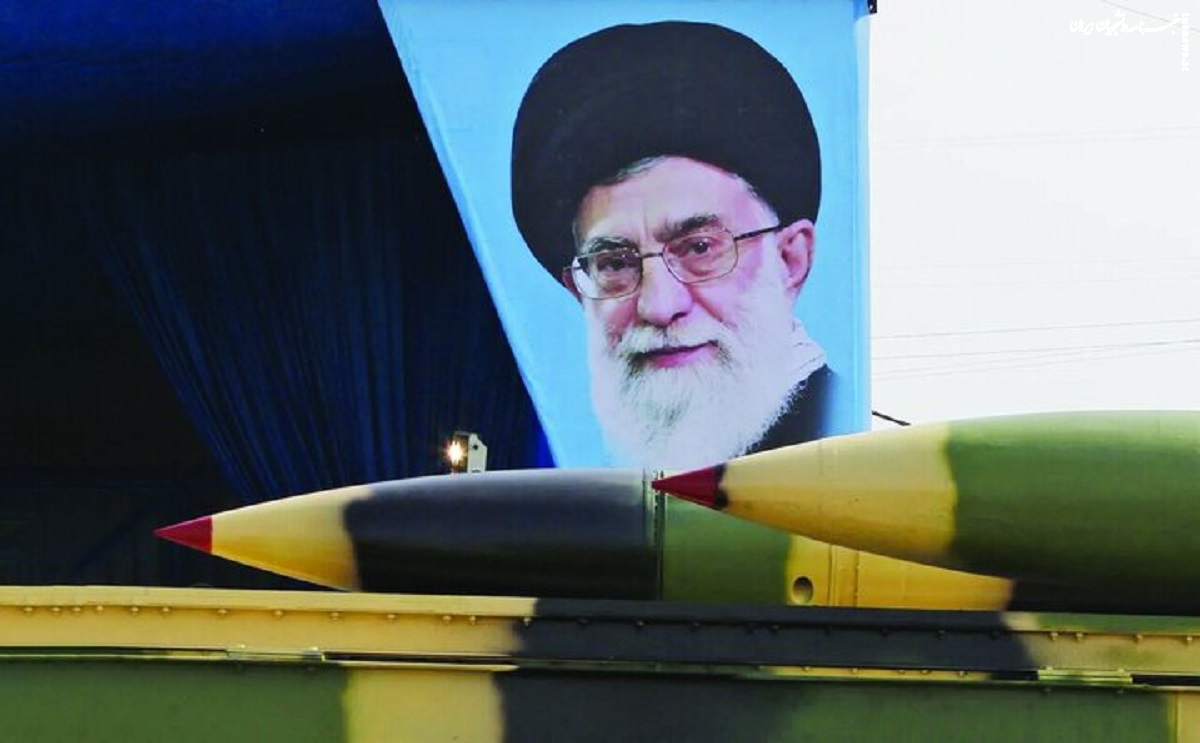to report «iusnews»; The insight of the Leader of the Islamic Revolution, Ayatollah Ali Khamenei, has kept the Islamic Republic’s upper hand in its deterrent missile prowess.
In the realm of national defense, the Islamic Republic of Iran has maintained a formidable stance thanks in large part to the strategic foresight of the Leader of the Islamic Revolution.
As the architect behind Iran's missile program, Ayatollah Khamenei's influence has been pivotal in shaping the country's deterrent capabilities.
Visionary leadership and Iran's missile program
Speaking in late June 2017, Brigadier General Amir Ali Hajizadeh, commander of the Islamic Revolution Guard Corps (IRGC) Aerospace Force, underscored Ayatollah Khamenei's significant role in establishing Iran's missile industry. General Hajizadeh highlighted Ayatollah Khamenei's involvement since the Sacred Defense era (Iran’s defense against the invading Saddam Hussein army in the 1980s), where he consistently advocated for the advancement of military capabilities, including through reverse engineering.
Ayatollah Khamenei's leadership has been characterized by a steadfast commitment to bolstering Iran's defense infrastructure and ensuring its preparedness in the face of external threats. His visionary approach has enabled Iran to assert itself as a regional power, capable of safeguarding its sovereignty and deterring potential aggressors.
Furthermore, Ayatollah Khamenei's emphasis on self-reliance and indigenous innovation has not only propelled Iran's technological advancements but also solidified its position as a leader in defense technology within the region.
On March 30, 2016, in the meeting with the panegyrists of Ahlul Bayt (a.s.) on the occasion of Fatimah Zahra’s (s.a.) birthday anniversary, Ayatollah Khamenei pointed to the bullying policy of big powers, saying, “I am not against political negotiations, of course not with everyone. There are some exceptions. I am alright with political negotiations at an international level. I have had certain ideas in this regard since the time of my presidency and I have always pursued such matters. They should not pretend that we are against the essence of negotiation. This is not the case. We agree with it more than they do and in some cases, we know how to negotiate better than they do. We know how to act in this regard. The enemy is using political negotiations as well. Therefore, we should be careful.”
Elsewhere in his remarks, Ayatollah Khamenei stated, “Some people say the future of the world is all about negotiations, not about missiles.” If this is said out of ignorance, well it is ignorance, but if it is said knowingly, it is treason! How is such a thing possible? If the Islamic Republic pursues science and technology, political negotiations and various financial and economic projects – all of which are necessary of course – but lacks a defensive power and the power to defend, then any rogue and any small and tiny government will threaten it with missiles if it does not do such and such a thing. Well, if you do not have the opportunity to defend, you will be forced to retreat.”
According to the Leader, the achievements of the Islamic Revolution Guard Corps have been “a source of pride and honor not only for Iranians but also for other nations.”
Also on October 25, 2017, the Leader, in his address to military cadets, touched on the importance of security saying, “ When we say that security is one of the most important areas, this is because every other achievement depends on security. If security does not exist, then scientific, industrial and economic achievements will not exist either.”
Elsewhere in his remarks, Ayatollah Khamenei added, “We should rely on our elements of power despite and contrary to the desires of the enemy. We have announced before and we would like to announce once more that the defensive resources and power of the country are not negotiable, and they cannot be bargained over. Can they come along and criticize us for having defensive means, for having various forms and versions of them, and for producing and researching into them in the first place? We will not bargain and negotiate with the enemy over those things which increase, and provide support to national power. We are moving forward on the path of the country's power, and this falls on your shoulders.”
Throughout various periods, Ayatollah Khamenei has consistently emerged as an advocate of the defensive missile program. His unwavering stance that Iran's missile capabilities are not negotiable has underscored the country's commitment to safeguarding its borders and national security.
Since the triumph of the Islamic Revolution, Ayatollah Khamenei has steadfastly backed the development of missile technology, recognizing it as a critical component of the nation's deterrence strategy. This steadfast support has elevated Iran to a level of capability that it can effectively protect its sovereignty and territorial integrity.
The recent punitive and retaliatory response of the Islamic Republic to the Zionist regime's aggression on April 13 once again showcased Ayatollah Khamenei's resolute position on keeping Iran's missile program beyond the realm of negotiations with the West. Following the terrorist attack on the Iranian embassy in Damascus on April 1, Iran swiftly responded with a barrage of drones and missiles targeting Israeli military bases in occupied territories.
Operation True Promise, as it was named, reportedly involved a total of 300 drones and missiles precisely aimed at Israeli military installations across occupied lands. This decisive action begs the question: without Iran's formidable missile capabilities, how could such a response have been possible?
Ayatollah Khamenei's leadership has ensured that Iran maintains the upper hand in responding to threats and aggression, safeguarding the country's interests and deterring potential adversaries.
Even amidst pressure to rewrite the Iran nuclear deal, known as the JCPOA, during the tenure of Donald Trump, Ayatollah Khamenei's foresightedness prevailed. Iran avoided accepting Trump's demands for limitations on its missile capabilities, regional influence, and nuclear program.
In essence, Ayatollah Khamenei's vision epitomizes his commitment to protecting national sovereignty and deterring aggression.
First Published by Tehran Times



